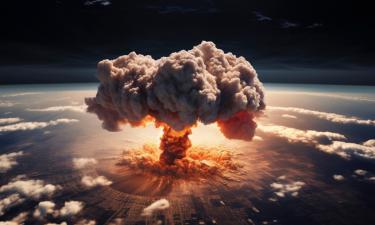2005 - "a year of unspeakable violence against media"
The International Federation of Journalists called on western governments seek justice for the killing of journalists around the world Monday, after reporting that a record 150 media professionals were killed while working in 2005. Deliberate attacks, often by criminals, political extremists or paramilitary groups, accounted for over half the deaths said the IFJ in what its Secretary General Aidan White called "a year of unspeakable violence against media." Thirty-five journalists were killed in Iraq alone.
"It's the worst year in terms of the number of journalists that have been killed," White told a news conference, adding that "every day is hunting season" against journalists in many of the world's hot spots, notably in Iraq and the Philippines, which the IFJ said were the most dangerous countries for reporters.
White added that there was also an increased frustration over western governments' lack of criticism of media crackdowns in certain Asian countries. "Ninety percent of what we report will not be investigated," said White. "impunity in the killing of journalists remains the intolerable scandal of our times that can no longer be ignored by the international community."
White added that 2006 was also looking to be a record year, saying that four journalists had already been killed, two in the Philippines and one each in Iraq and India. White and Italian Green EU lawmaker Monica Frassoni called for renewed political efforts to put the issue on the top of the political agenda. White said the IFJ had pressed U.N. Secretary General Kofi Annan to push for a special resolution at the U.N. calling for action.
"Exposing violence against journalists can be considered a consistent pattern of everyday life today," said Frassoni. The organization's annual report said last year saw a trend toward "targeted assassination of editorial staff" with 89 "killed in the line of duty, singled out for their professional work." The rest died in accidents or natural disasters, including the 48 Iranians killed in a Dec. 6 plane crash in Tehran.
Even without the Iranian crash, Iraq would have ensured the Middle East remained the most dangerous place for reporters. Starting with TV journalist Abdul Hussein Khazal al-Basri gunned down in Baghdad with his 3-year-old son on Feb. 9, the year was marked by a string of deadly attacks on Iraqi reporters.
The IFJ said U.S. troops were involved in five of the deaths of journalists there, bringing the total to 18 since the 2003 invasion. The IFJ has long been critical of U.S. forces in Iraq and White said the figures strengthened his organization's call for independent investigations.
He also highlighted the assassination of prominent Lebanese journalist Gebran Tueni, a vocal critic of Syria's role in his country who was blown up in a car crash in December, the last killing of the year. Outside the Middle East, the Philippines was the most perilous place with 10 journalists gunned down. The IFJ said it plans to open a "a media safety office" there to make journalists safety-savvy, reports the AP. N.U.
Subscribe to Pravda.Ru Telegram channel, Facebook, RSS!




